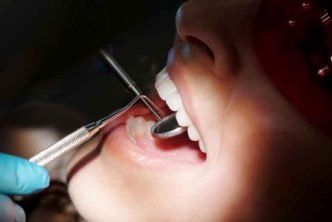Hearing the words “you have cancer” can almost make you feel incapacitated. It is a diagnosis that everyone has probably experienced in some fashion at some point in life. Someone in your family, a friend or maybe even you have had a cancer diagnosis in the past. Those words can create such debilitating fear.
The fact that there are so many different types of cancer does not bring much comfort. It more than likely contributes to the fear that already exists. Knowledge is one factor that can help bring about some comfort when it comes to fear about anything. It can give you a sense of control and even comfort when you hear a scary diagnosis like this. When you educate yourself, you can make decisions and take steps to help improve your situation. Let’s look at some information concerning bladder cancer, a common form of cancer, to help boost your knowledge and hopefully bring you a little peace of mind.
Table of Contents
Bladder Cancer Risk Factors
Bladder cancer is associated with certain risk factors such as exposure to specific chemicals, smoking and genetic mutations. Even certain medications can be linked to bladder cancer. Those who smoke are at minimum three times more likely to receive a bladder cancer diagnosis than those who do not smoke. Knowing the risks allows you some control to improve your chances of avoiding this diagnosis.
It does not necessarily follow that if you have these risk factors, you will be diagnosed with bladder cancer. However, it does mean that you have some control and foresight when it comes to preventative measures. If you are at increased risk because of a family history or genetic mutation, you have an advantage and can be monitored to help ensure you remain healthy.
Bladder Cancer Symptoms
It is beneficial to know the symptoms of bladder cancer. Although symptoms can indicate possible bladder cancer, the symptoms can also be related to something else. Alternatively, you may not have these symptoms yet still have bladder cancer. You may experience the below symptoms with bladder cancer.
- Urinating frequently
- Not being able to urinate even though you feel the urge to urinate
- Feeling the need to urinate multiple times throughout the night
- A burning sensation or feeling of pain during urination
- Lower back pain on one side
- Noticing blood in the urine
Bladder Cancer Diagnosis
When you visit your doctor with specific symptoms, your doctor will start ordering tests to try to determine the cause of the issue. They will likely use multiple tests before diagnosing cancer. They will also use tests, such as imagining, to determine if cancer has spread from its original location. When this happens, it is called metastasis. Your doctor will likely schedule a biopsy for a definitive diagnosis.
Bladder Cancer Treatment
Find out your options for bladder cancer treatment Sydney right away. Treatment is most successful when bladder cancer is found early. This is why it is critical to inform your doctor of any symptoms or changes in your physical health. Treatment can consist of different options depending on many factors. Some factors that may help determine how bladder cancer is treated include the cancer stage, your age and your other medical issues. Some of the treatment options include but are not limited to the following.
- Surgery
- Chemotherapy
- Radiation
- Immunotherapy
You can overcome fear and anxiety about using knowledge. The more information you have, the better prepared you are for any situation, particularly a health crisis. You may learn information that sounds scary, but you will find information on what steps you can take to help your situation. This knowledge will give you some power before or even after a diagnosis.
After a diagnosis, there is no need to pretend nothing has happened. Other things in your life were likely overwhelming before your diagnosis. Let go of those things that are not urgent, and focus on the medical issues that are in front of you now. Keep in mind that you won’t always feel the way you do right after your diagnosis.
Make sure you have support around you. You get to decide who you want in your circle for support. You can decide how much information you share. There are also support groups with people who can relate to your experience. Research ways in which you can develop healthy habits. If diagnosed with bladder cancer, research your diagnosis and what comes next. This will help provide the peace of mind that you deserve.





